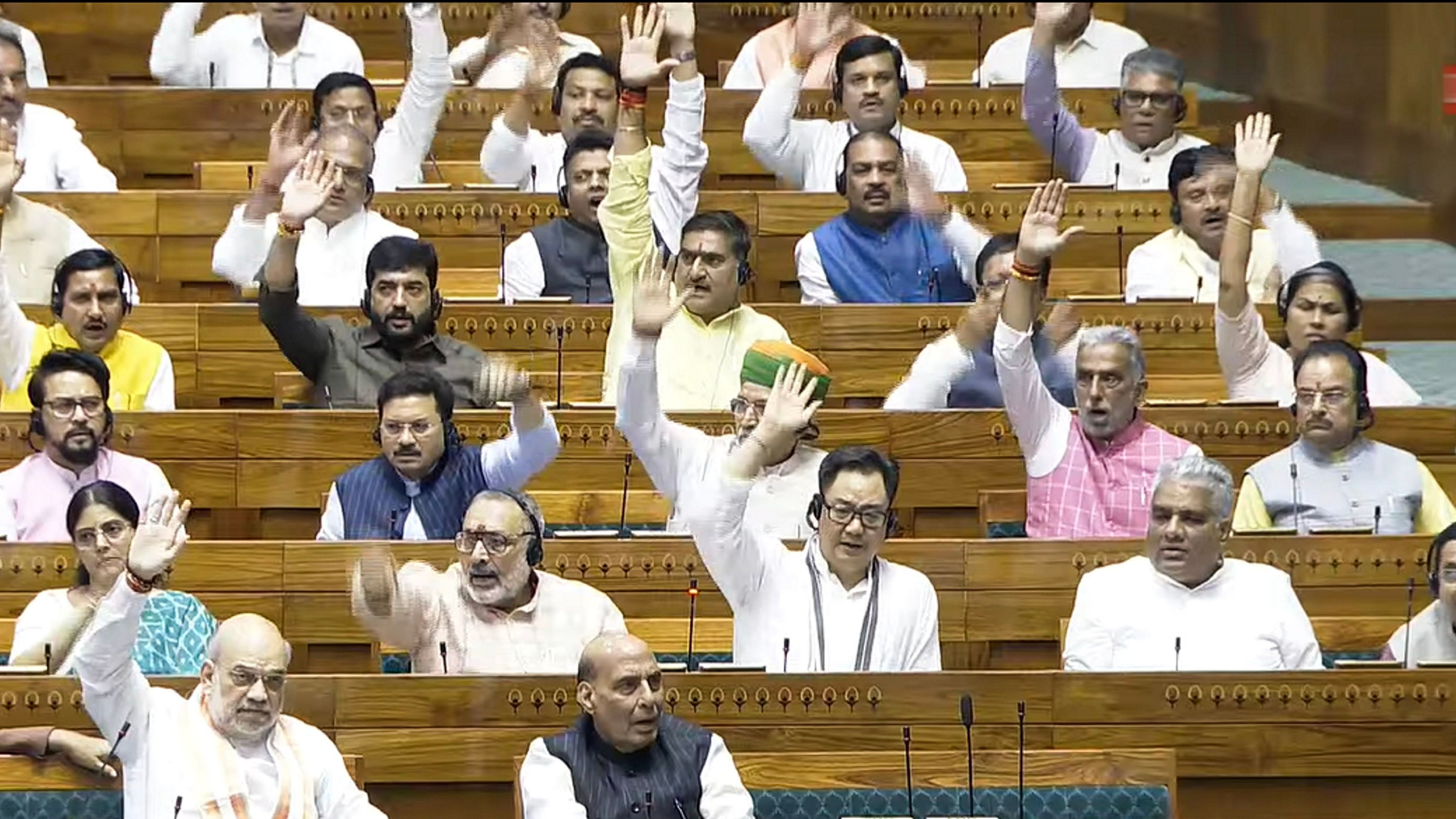
Union Ministers Rajnath Singh, Amit Shah and other members in the Lok Sabha during the Monsoon session when the Centre introduced the Waqf (Amendment) Bill in the Lok Sabha.
Credit: PTI File Photo
Mumbai: A conglomeration of Muslim community including Islamic scholars, clerics, intellectuals have asked 'secular political parties' to clarify their stand vis-a-vis the Waqf (Amendment) Bill which has been referred to the Joint Parliamentary Committee (JPC).
In the meeting, the community decided to meet the members of JPC and hold discussions with them in order to present their point of view.
The development comes in the run up to the Assembly polls in various states like Jammu & Kashmir, Haryana, Maharashtra and Jharkhand - the first set of major elections after the 2024 Lok Sabha elections.
Last week, the Centre introduced the Waqf (Amendment) Bill, which once passed would be known as the United Waqf Act Management, Empowerment, Efficiency and Development Act or UMEED for short.
The Muslim community, however, appreciated the statement of Shiv Sena (UBT) head Uddhav Thackeray in this regard, who slammed the BJP government and questioned its intention of presenting the bill now when earlier they had a clear majority.
At a discussion in the Islam Gymkhana hosted by the Tareek-e-Awkaf and All India Ulema Board, the Muslim community raised concerns over the bill as it would significantly strip the power of the Waqf Boards.
The meeting was presided over by Shabbir Ansari, President, Tahreek e Awqaf while the Chief Guest was Yusuf Abrahani, Chairman, Islam.
The discussion was moderated by Salim Alware.
The meeting was unanimous in their aim that the Waqf Bill needs to be opposed as the government's intention of introducing it is not good.
It was pointed out that the Waqf Bill has been introduced as part of well-thought-out politics. They said, "When there is a democratic process for election, why nominate people?
"No person from outside the community is part of other religious bodies. What is the point of including non-Muslims in Waqf bodies? This amounts to interference in religion and religious activities."
According to the speakers, Article 14 guarantees equality before the law and Article 15 bars discrimination on grounds of religion, race, caste, or place of birth.
Article 25 gives the right to practice a religion of their choice and, finally, Article 30 gives minorities the right to establish and administer educational institutions for their community. Thus, they feel the bill is discriminatory in nature.